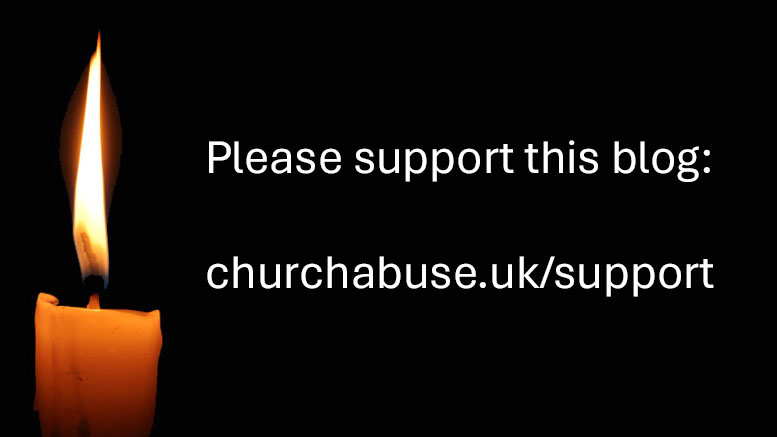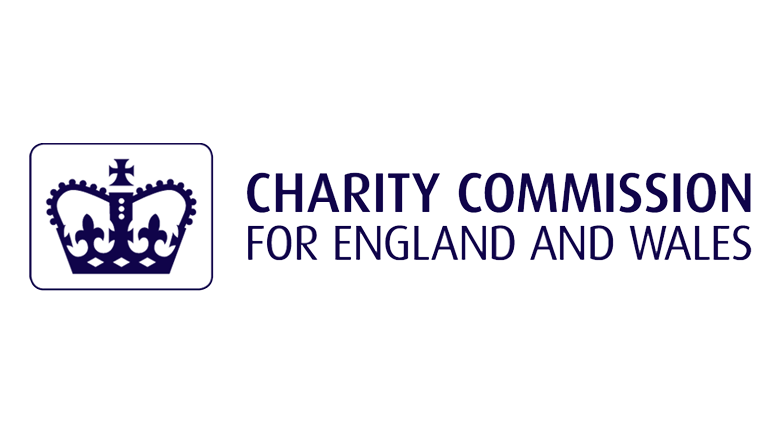Update: 4 January 2025:
The Charity Commission has sent a response to this letter, which you can read here.
Mr David Holdsworth
Chief Executive
The Charity Commission
Mr Orlando Fraser KC
Chair
The Charity Commission
20 November 2024
Dear Messrs Holdsworth and Fraser,
This is an open letter, which will be published on Friday 22 November 2024, at churchabuse.uk.
Earlier this year, the Charity Commission refused my request for information about safeguarding complaints the Commission had received about the Archbishops’ Council (registered charity number 1074857).
The basis for the refusal was the costs exemption in the Freedom of Information Act, on the basis that you hold “448 potentially relevant records”. My request for information was not solely based on your obligations under the Freedom of Information Act, but also on your statutory and common law duties of transparency. But your Senior Information Rights Officer decided that “Although there is a presumption in favour of disclosure, the significantly greater public interest at this time is in withholding the requested information.”
You will be aware that the Archbishop of Canterbury, the Most Revd and Right Hon Justin Welby, a trustee and Joint President of the Archbishops’ Council, has announced his resignation this month after yet another “Lessons Learned Review” commissioned by the Archbishops’ Council showed that the council had, again, failed in it safeguarding duties and procedures.
Has the charity submitted a serious incident report to the Charity Commission? The Makin Report, which led to the archbishop’s resignation shows that the charity HAS “caused harm to its beneficiaries, staff, volunteers or others who come into contact with your charity through its work”; the commissioning of the work has caused “loss of the charity’s money or assets”; and it has caused “harm to the charity’s work or reputation”.
The Makin Review is just another in a long line of Lessons Learned Reviews commissioned at great cost by the Archbishops’ Council. But the Council never learns any of the “lessons” – this is evidence by the repetitive nature of many of the recommendations which are never acted upon.
In recent years, a number of serious concerns about the Archbishops’ Council’s safeguarding failures have been reported to the Charity Commission.
These include:
- On 11 August 2020, a group of interested parties, including General Synod members (past and present), bishops, lawyers, clergy, laity, survivors and victims of church abuse, and their advocates, wrote a detailed letter of complaint about the Archbishops’ Council’s safeguarding failures to the Charity Commission
The Charity Commission took no action. - On 13 December 2022 a group of concerned General Synod members (past and present), clergy, laity, survivors and victims of church abuse, their advocates, as well as complainants and respondents who have been maltreated and harmed by Church of England safeguarding processes, wrote a detailed letter of complaint about the Archbishops’ Council’s safeguarding failures to the Charity Commission
The Charity Commission took no action. - In June 2023, the Archbishops’ Council themselves submitted a serious incident report to the Charity Commission over its decision to dismiss its so-called “Independent” Safeguarding Board (ISB). More details of this are set out below.
The Charity Commission took no action. - On 29 June 2023, the National Secular Society submitted a complaint to the Charity Commission about the Archbishops’ Council and its failure to uphold its duty to take reasonable steps to protect from harm people who come into contact with it.
The Charity Commission took no action.
Independent Safeguarding Board
The decision by the Archbishops’ Council to sack the ISB has been the subject of two reports, One, commissioned by the Archbishops’ Council, is the Wilkinson Report. It highlights serious governance failures by the Archbishops’ Council; a failure to consider the impact on survivors of abuse; the ignoring of professional safeguarding advice; and a waste of considerable amounts of charitable funds.
The second report was produced by Consultant Forensic and Clinical Psychologist David Glasgow. It found that the survivors of abuse that the ISB was working with suffered “serious and adverse consequences” as a result of the termination and method of termination of the ISB, and that it is “not an exaggeration to state that in some cases this acute exacerbation of symptoms risked life threatening consequences.”
In response to the controversy caused by the disbanding of the ISB, the Archbishops’ Council commissioned Professor Alexis Jay to prepare a report setting out steps towards safeguarding independence. She produced that report in February this year. Rather than implementing the report and its recommendations, the Archbishops’ Council set up “response groups” which are currently working to water down the recommendations. A report is expected to be given to the General Synod in February 2025, a whole year after the “urgent” review by Professor Jay was published.
Their rationale for this is that Church of England bishops and safeguarding staff do not want to be independently accountable – the Archbishops’ Council has published a report openly stating this.
The financial cost of disbanding the ISB is well over one million pounds – that is the stated cost of the Wilkinson Review, Professor Jay’s work, and the work of the “Response Groups”.
The human cost is immeasurable. The review by David Glasgow sets out some of the harms caused by the disbanding of the ISB, and how it was done.
Today – well over a year since the ISB was disbanded – no progress has been made to progress independent reviews into the way 11 victims and survivors of church-related abuse who were being supported by the ISB. This despite repeated and public promises that the reviews would be pursued urgently.
These are people who were badly treated by the Archbishops’ Council staff when they disclosed their abuse; and who are still being badly treated by the Archbishops’ Council through the unconscionable delays in commissioning and carrying out reviews into the way they were treated.
The Charity Commission exists by statute. It receives public funds to carry out statutory objectives and functions.
Section 14 of the Charities Act 2011 includes the following objectives, which are relevant here:
(1) to increase public trust and confidence in charities.
(3) to promote compliance by charity trustees with their legal obligations in exercising control and management of the administration of their charities.
(4) to promote the effective use of charitable resources.
(5) to enhance the accountability of charities to donors, beneficiaries and the general public.
Section 15(3) of the Act gives you a very serious function:
- Identifying and investigating apparent misconduct or mismanagement in the administration of charities and taking remedial or protective action in connection with misconduct or mismanagement in the administration of charities.
The question that I, and many others I am in contact with, want answered is this:
Why on earth has the Charity Commission not launched a formal statutory inquiry into the working of the Archbishops’ Council and its safeguarding failings?
The second priority of your strategy for 2024 to 2029 is to “take robust action where we see wrongdoing and harm.”
So why haven’t you?
People have died as a result of the failings of the Archbishops’ Council, and others are still alive despite trying to take their lives.
Just how serious must “misconduct or mismanagement” have to be before the Charity Commission wakes up and fulfils its statutory function?
You have refused to disclose information under the Freedom of Information Act and your statutory and common law duties. This only serves to suggest that there is something to hide.
You are the regulator of charities. Your silence in response to report after report after report highlighting continuing serious wrongdoing by the Archbishops’ Council, and their failure to act on the recommendations of those reports, is deafening.
The Archbishop of Canterbury has resigned. This is unprecedented. And yet there is still no word from the Charity Commission about how it will undertake its legal role.
Please use your powers to open a statutory investigative inquiry int the Archbishops’ Council, or explain why their failings are insufficient for you to do so.
Yours sincerely
Gavin Drake
Update: 4 January 2025:
The Charity Commission has sent a response to this letter, which you can read here.



The Charity Commission is not fit for purpose; but most of us knew that anyway. It survives under the cloak of Establishment cover up
When the Archbishops’ Council summarily closed down the Independent Safeguarding Board without notice, it failed to set up protective measures, advance counselling, or advance warning to the survivor/victims who had bravely opened their raw wounds to the ISB and were consequently left in limbo and distress. It was a safeguarding fiasco, haemorrhaging the tenuous trust they had started to have in the professionals as they opened up to the re-traumatisation so often involved in sharing your violations with others. That alone should have led to resignations.
However, the survivors then had to handle the trauma of fearing their notes and disclosures might now be handled by the very organisation that had wounded them. They also had no idea when any care (and further trauma) might happen. According to information I trust and believe, in the immediate aftermath they were told provisions for their care would be put in place ‘within weeks if not days’. 16 months later I am told they are still in limbo. If true, that compounds the safeguarding disgrace of the original shutting down of their cases and the independent professionals they had opened to.
I believe General Synod should be calling for an in-depth enquiry into these profound safeguarding failures, and suspension of all members of the Archbishops’ Council involved in these events – because they themselves have failed to safeguard victim/survivors and have shattered their trust and compounded the abuse done to them by the Church.
These comments are my opinion, right or wrong. How can decent people, injured badly by the Church, have been hung out to dry? Why did not their interests come first? Why weren’t they consulted and forewarned? Why did the General Secretary decline to engage in Independent Mediation with the ISB Board members first, instead closing the Board in such haste? Why could this all not have been brought to Synod, meeting a week or two later, to explain, to set out plans for the immediate pastoral care of the abused, to hear from the ISB members? Why the irresponsible haste and safeguarding fiasco?
Sadly, I think they are unfit to lead.